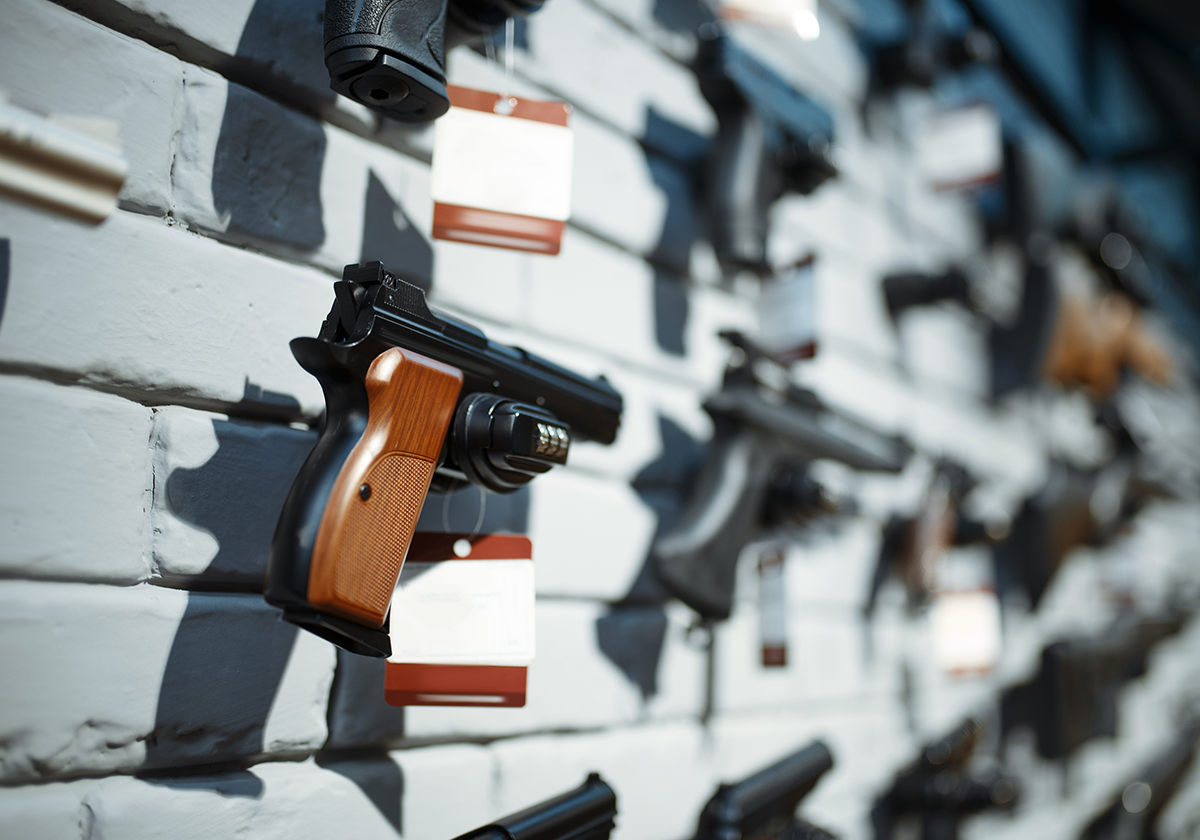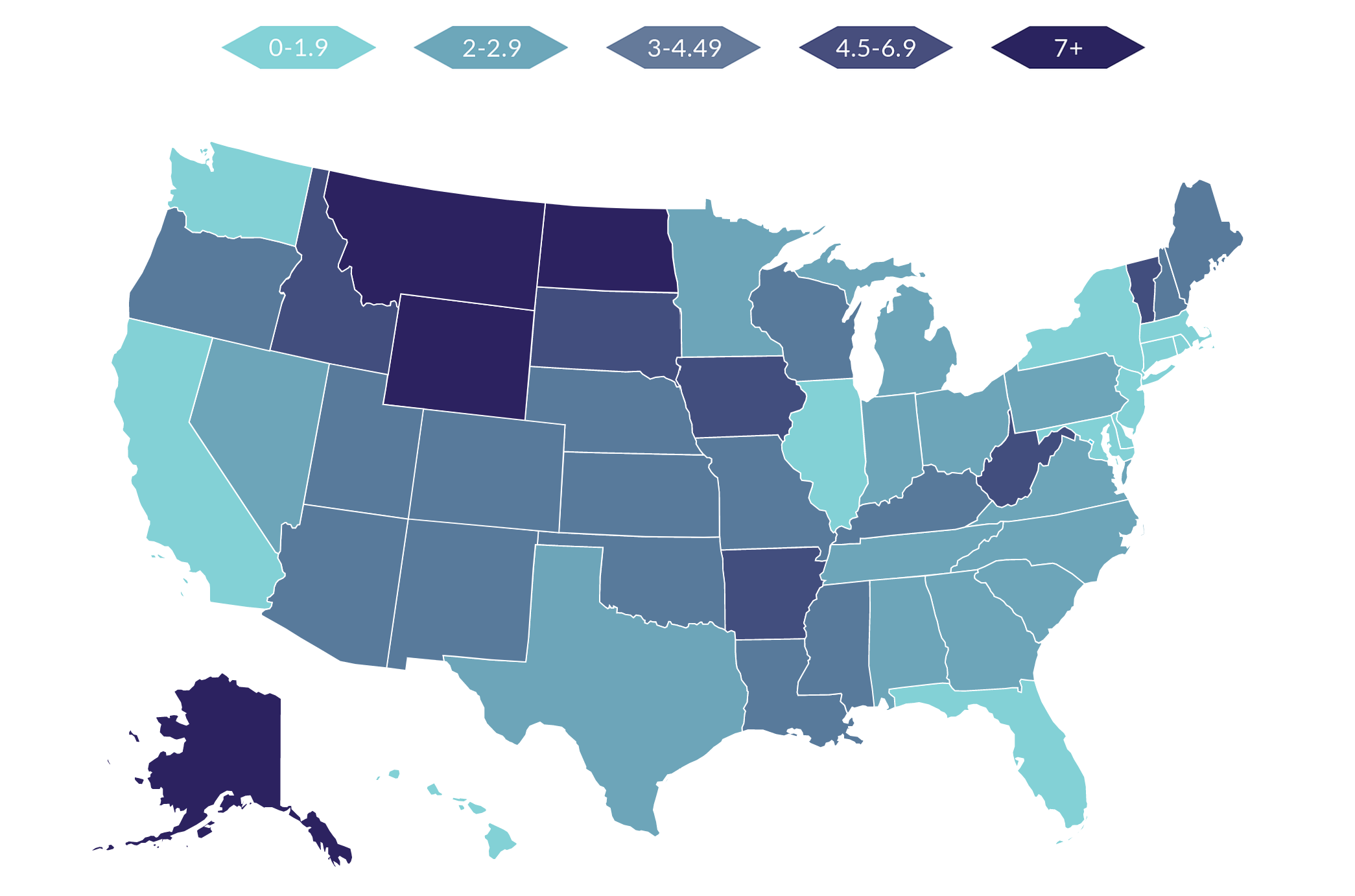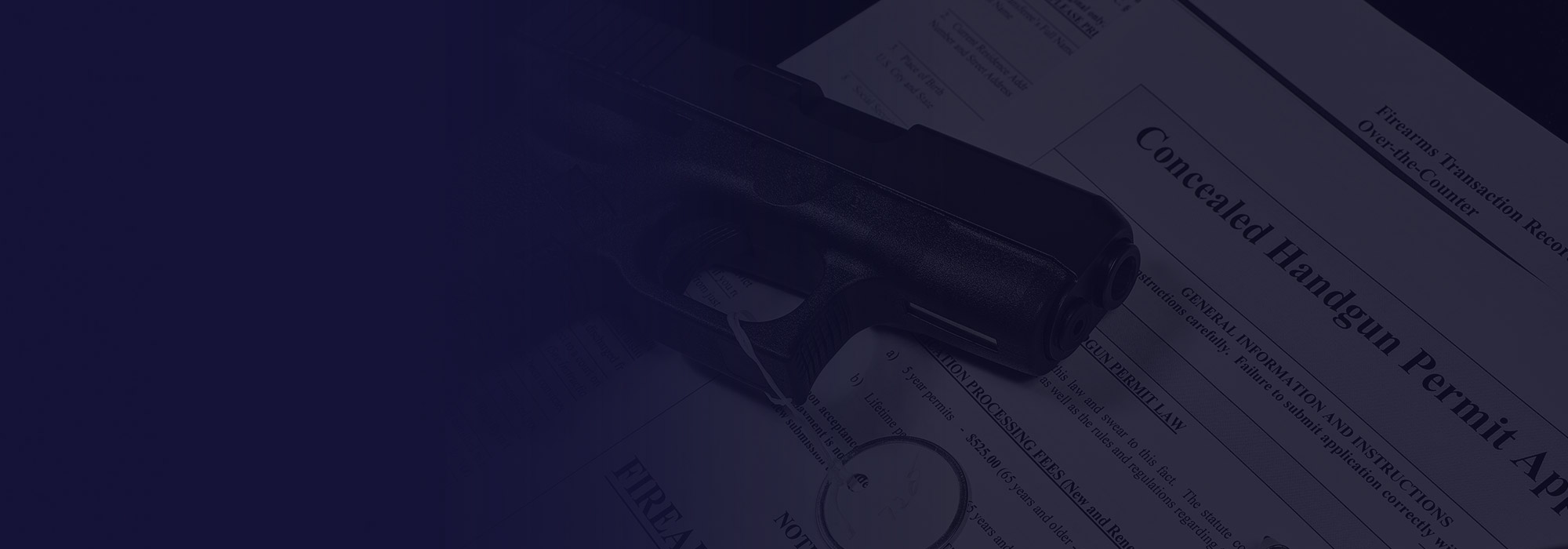There are currently 78,617 federally licensed firearms dealers in the United States - knowing whether these establishments exist within your book of business is very important.
How you can be affected
The idea behind the Federal Firearms License (FFL) program is to limit the potential dangers of the firearms market, ensuring that those who act as firearms dealers do so in accordance with the law. However, even with these safeguards, not all risks can be fully mitigated.
Large insurance settlements on behalf of firearms owners, sellers, and manufacturers have become increasingly common. Damage, injury, and loss of life related to firearms is a prominent liability exposure for all participants in the gun ownership chain, from the manufacturers and sellers to the companies which insure them.
Civil law regards firearms as “dangerous instruments” and, as such, “strict liability” applies. In other words, negligence on the gun owner’s part is not required to obtain a loss settlement. No law strays from strict liability, though laws vary from state to state.
The risk of theft is another consideration. According to the ATF, from 2012 to 2019, 53,970 guns were stolen from gun stores nationwide.1 Between 2012 and 2020, burglaries at FFL establishments increased from 377 per year to 492 per year.2,3

Background into federal firearms dealers
The United States government requires that any individual or company that wishes to manufacture, import or sell firearms be federally licensed to do so.
Established in 1968 following the implementation of the Gun Control Act, the FFL system is controlled by the Bureau of Alcohol, Tobacco and Firearms and Explosives (BATFE, commonly known as the ATF).4
There are several different types of FFLs that exist:5
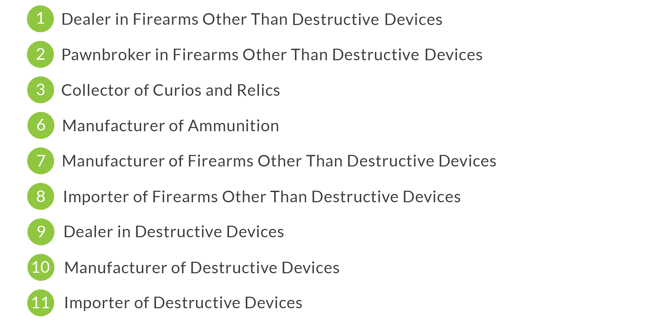
Our primary focus is on dealers, those who possess license types 01, 02, and/or 09. Dealer FFLs may purchase and sell guns as a business and comprise the majority of FFLs that have been issued.6
For individuals or companies who wish to apply for an FFL, they must do so through the ATF.7 Applicants must pass several criteria to be approved:
Currently, there are nearly 80,000 licensed dealers in the United States. This map shows the number of dealers per 10,000 residents of each state:
Where are guns sold?
Big box retailers like Walmart and Dick’s Sporting Goods may seem the obvious answer. And while standalone gun stores and larger retailers do sell their fair share of firearms, they make up a small portion of total retail sales.
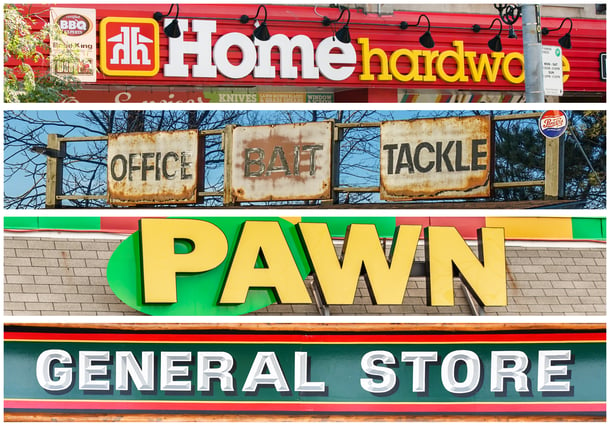 Nearly any type of business can be licensed to sell firearms.
Nearly any type of business can be licensed to sell firearms.
Related:
Infographic: The Simplicity of Our Book Review Tool
So where are guns most likely to be sold?
Across the country, in every state, guns are sold in a wide variety of different venues. After all, nearly any business with the proper permits and approval can sell firearms. From pawn shows, adventure centers, sporting goods stores, and bait & tackle shops to hardware stores, country markets, feed suppliers, and bike shops, guns can be sold nearly anywhere.
Managing FFLs in your book of business may seem straightforward – addressing the prominent sellers and making decisions that best suit your company – but not-so-obvious sellers offer up the potential for hidden risks to crop up.
The liability exposure for a business without gun sales is much different in comparison with businesses that do sell guns. Insurance companies must ensure that they are properly pricing their policies or limiting their exposure altogether. To do this, they require up-to-date information on FFL establishments. That is where we step in.
What you can do about it
The BuildingMetrix Federal Firearms Dealer Check makes uncovering hidden risk an easy and straightforward process.
Firearms sales require unique underwriting and pricing: by determining businesses licensed to sell guns, you can accurately price your policies or avoid the liability altogether. We take your book of addresses and return a list of all federally licensed firearms dealers within your book, allowing you to focus on helping customers get the right coverage while reducing the risk to your business.
Save time and more effectively manage firearms exposure by using the BuildingMetrix Federal Firearms Dealers Check.
[1] American Progress, https://www.americanprogress.org/article/gun-theft-united-states-state-state-analysis/
[3] ATF, https://www.atf.gov/file/4721/download
[4] Wikipedia, https://en.wikipedia.org/wiki/Federal_Firearms_License
[5] ATF, https://www.atf.gov/firearms/listing-federal-firearms-licensees
[6] Rocket FFL, https://rocketffl.com/ffl-license-types/


